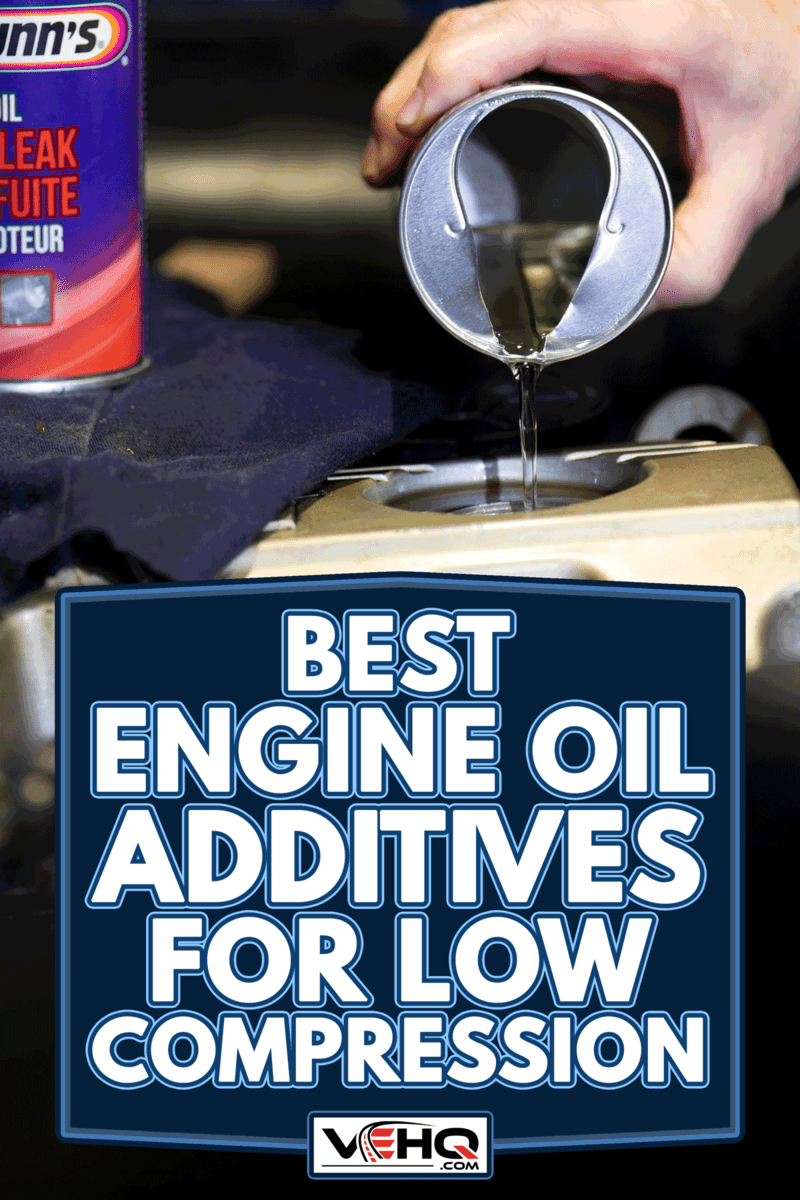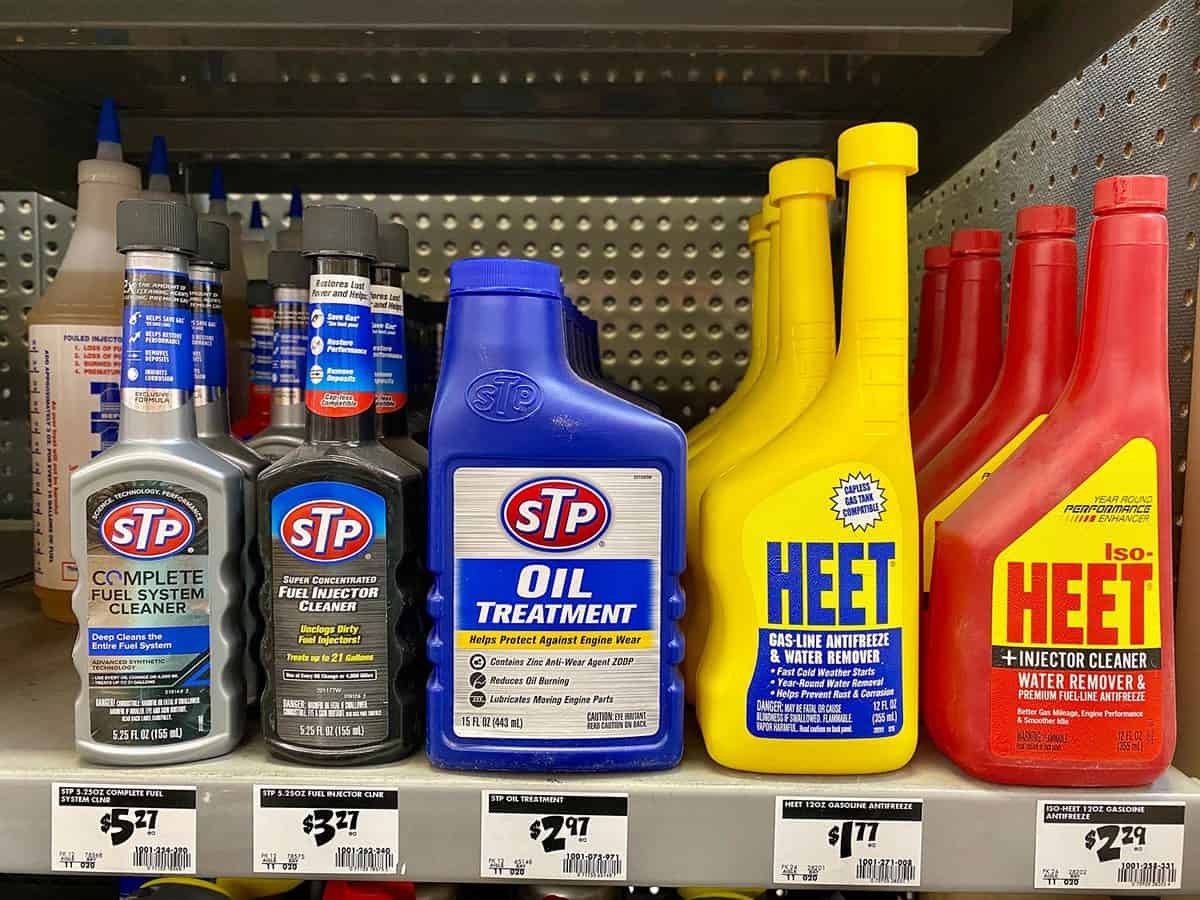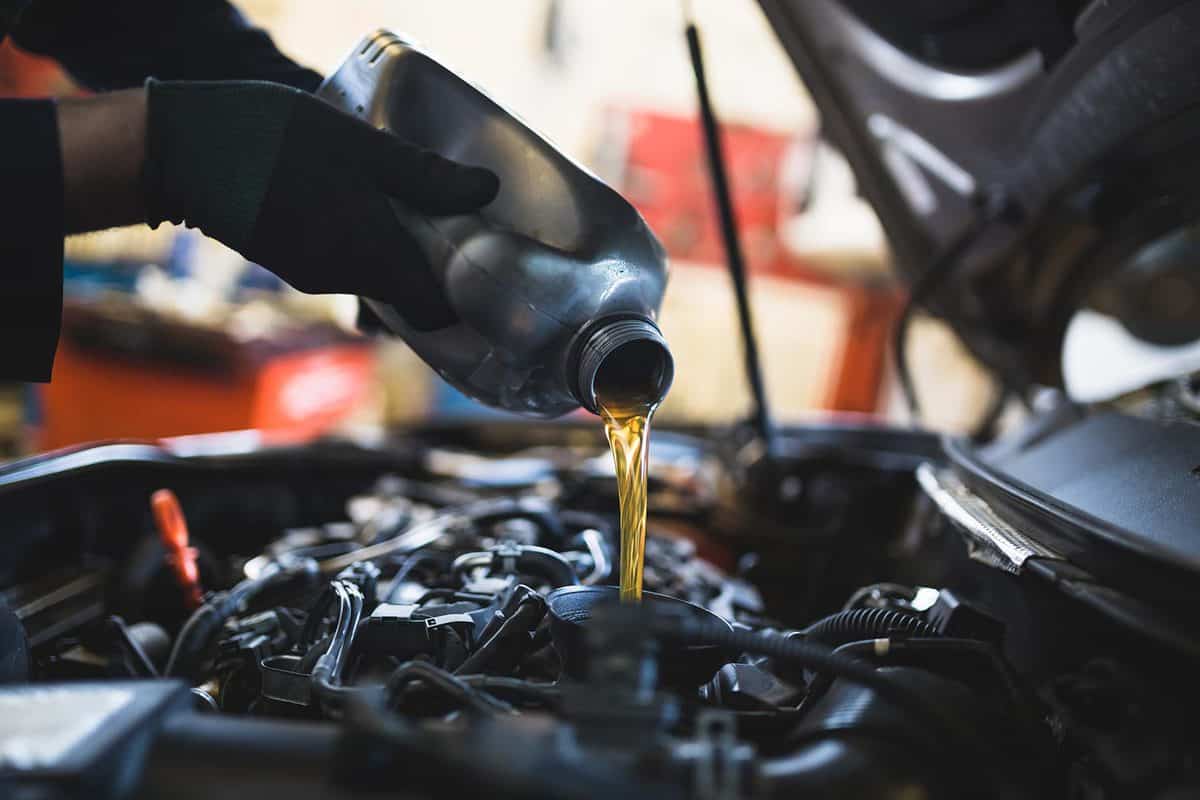The term low compression is something that you don't want to hear as a car owner. Luckily, there are many ways to prevent low compression. One of them is just choosing the right engine oil additive. In this post, we've scoured the web so that we can help you choose the right engine oil additive for your vehicle. Let's start!
Here are some of the tried and tested engine oil additives to help with compression:
- Ceramizer®
- Lucas Heavy-Duty Oil Stabilizer
- STP® Oil Treatment
- Rislone Compression Repair With Ring Seal
Each engine oil additive has its unique specification and characteristics. However, they all have the same purpose. They help with your vehicle's compression.
Now, let's go into detail on what makes these engine oil additives great for tackling compression-related issues. What makes them unique from each other? For more on this and other helpful information, head on over to the rest of the article.

Engine Oil Additives That Help With Compression
Ceramizer®
Ceramizer acts as a ceramic-metal layer between engine parts. This reduces friction which then, in turn, reduces the wear and tear of the parts in contact. And ultimately, makes the engine work more efficiently and yields better compression results.
The properties of Ceramizer help regenerate the original geometric design of the engine by filling up worn surfaces and covering them with a ceramic-metal coating. The effectiveness of Ceramizer can last for 43,495 miles, even after changing the oil.
Lucas Heavy-Duty Oil Stabilizer
Lucas Heavy-Duty Oil Stabilizer makes the engine oil thicker. Firstly, this thickening of the oil helps in reducing friction, heat, and any wear on the engine. And second, because this additive provides a great seal between cylinder walls and piston rings, the compression ratio is increased.
This increase in compression ratio provides additional engine power and fuel efficiency. It can also blend with all the other automotive lubricants and even synthetics, making this a versatile product.
Click here to check out the Lucas Heavy-Duty Oil Stabilizer on Amazon.
STP® Oil Treatment

STP Oil Treatment provides a thick cushion between engine parts due to its high-viscosity formulation. It also contains detergents that help clean and prevent sludge from accumulating in critical engine parts.
Engines that use STP Oil Treatment experience an increase in compression. This is because of the extra protection against engine heat that allows the engine oil to maintain its key lubricating properties.
To check out this STP® Oil Treatment on Amazon, click here.
Rislone Compression Repair With Ring Seal
Rislone Compression Repair with Ring Seal works by reducing engine wear over time. It also rebuilds compression and repairs engine blow-by. Problems that could cost you a fortune down the line.
How it does its magic is by freeing rings and filling the gaps and scratches in cylinder walls. This, in turn, eliminates blow-by and compression loss while also reducing engine friction.
Rislone Compression Repair with Ring Seal works on either gasoline or diesel engines with conventional, high mileage, and synthetic engine oils.
Check out the Rislone Compression Repair with Ring Seal on Amazon by clicking here.
What Do Engine Oil Additives Do?

Engine oil additives are added to your standard engine oil to help enhance the lubrication, viscosity, and performance of your engine. Those oil additives comprise about 15% of the oil that goes into your engine. Additives are so common nowadays that nearly all commercial engine oil products contain additives.
It is also important to know that engine oils can lose their additives the older they get. This is one reason why some drivers purchase supplemental engine oil additives. Because they want to reinvigorate their oil and maintain optimal engine protection.
Are Oil Additives Necessary?

Ever since oil additives became a thing in the automotive world, this question has always been in the spotlight. But though, are oil additives really necessary? The simple answer is a yes!
Oil additives can be classified into six primary types.
- Anti-Wear Additives
- Viscosity Modifiers
- Corrosion Inhibitors
- Detergents
- Antifoamants
- Dispersants
Oil additives are not limited to only one type. Some products offer a mish-mash of different types to provide even better protection for your engine than just by using one type of additive.
Anti-Wear Additives
This type of oil additive reduces friction between engine parts. It does this by chemically reacting with metal surfaces when there is metal-to-metal contact. This type of additive is heat-activated and can not only minimize wear and tear but can also help protect the base oil from oxidation.
This type of additive is typically composed of phosphorus compounds, with zinc dialkyldithiophosphate (ZDDP) being the most common. And although ZDDP provides great lubrication, this type of additive deteriorates over time which can then exacerbate the wear and tear of the engine.
ZDDP has also been known to increase emissions and shorten the lifespan of your catalytic converter. That is why some brands offer zinc replacement additives that are formulated without ZDDP, thus, lowering emissions while also protecting your catalytic converter.
Viscosity Modifiers
Often considered to be one of the best engine additives. Viscosity Modifiers, also known as Viscosity Index Improvers, protect the engine by keeping the engine oil's viscosity in an optimal state no matter the temperature.
This type of additive prevents the oil from thinning out or losing its viscosity as temperature increases. When the engine's cold, Viscosity Modifiers keep the engine oil thin enough that it won't cause damage during start-up.
Corrosion Inhibitors
Corrosion is a problem common to all engines. As the temperature fluctuates, moisture can build up on different parts of the engine and cause it to rust. Corrosion inhibitors combat this problem by neutralizing acids that initiate internal corrosion and forming a protective chemical barrier that repels moisture and slows down oxidation.
Corrion inhibitors are typically made with barium sulfonate and calcium. Some brands may use different compounds, however, they all work the same. Some inhibitors are used specifically for certain metals so it's not uncommon for some brands to contain several corrosion inhibitors.
Detergents
Detergents on oil additives work the same way as your normal laundry detergents. Oil Additive detergents are designed to keep your engine clean and prevent gunk build-up. Detergents also neutralize acids that form in the oil during oxidation.
Antifoamants
This oil additive is designed to specifically stop the engine oil from foaming. How it does it is by reducing the surface tension between the air bubbles and the engine oil, this allows the bubbles to pop easily.
Foaming can lead to a huge problem with your engine. Without antifoaming additives, air bubbles can form and lead to cavitation inside the engine. This cavitation can then cause a loss in lubrication on critical engine parts, making them prone to wear and corrosion.
However, be careful when using antifoamants for your engine. Adding too much can have a reverse effect where air bubbles will instead increase. Antifoaming additives should be used in concentrations of around 20ppm or lower.
Dispersants
Dispersants are often found with engine oils that have detergents. The main function of dispersants is to suspend fine particles from the diesel engine soot. Thus, keeping the engine from any soot build-up that may lead to unwanted engine damage.
This combination of detergent and dispersant additives allows the engine oil to neutralize more acid and keep them away from critical engine parts. However, as these additives perform their purpose, they will eventually reach their limit, thus necessitating an oil change.
How Often Should I Change My Engine Oil?

Proper vehicle care and maintenance are the tried and tested methods for prolonging the lifespan of your beloved vehicle. However, due to the fast-paced lifestyle, we often forget to do even the most basic of vehicle maintenance.
Regularly changing the engine oil of your vehicle is very important. Not only does it keep your engine working efficiently, but it will also save you a ton of bucks down the road.
In the old days, it is recommended to change the engine oil every 3,000 miles. However, with the advancements in technology and more additives being added to the base oil, making the car more efficient. Recommended oil change intervals are now every 5,000 to 7,500 miles.
Keep this in mind. You cannot judge the engine oil condition just by looking at its current color. It is better to be safe and follow factory maintenance schedules than be sorry and shell out more cash for avoidable repairs.
In Conclusion

Taking into consideration the type of additive to use for your vehicle is important in preserving its lifespan. Especially with vehicles that have some compression issues. In the end, it is still best practice to always consult with your local mechanic for the best approach on anything related to your vehicle. They will be more than willing to help you. Drive safe!
If you found this post helpful, be sure to also check out some of our other posts related to vehicle maintenance:
How To Tell How Many Miles A Car Has Without The Odometer?
Does Revving Your Engine Warm It Up Faster?
Not Using Your Car For a Long Time? Here Are 12 Things To Do



